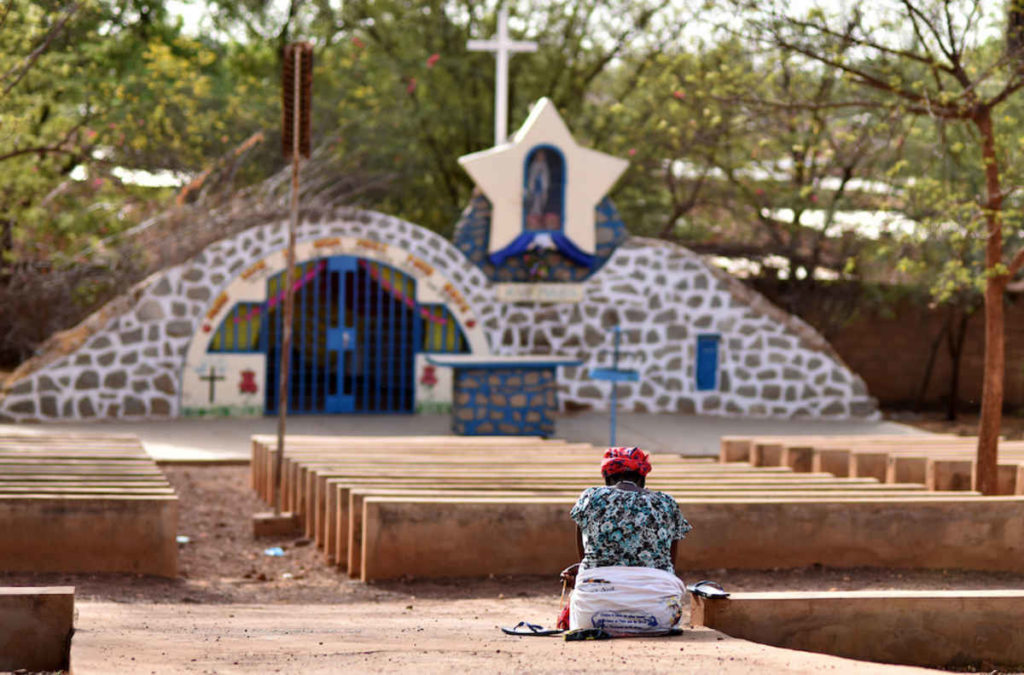Since January 2019, twenty people have been killed and several churches have been destroyed by Islamist forces operating in the West African nation of Burkina Faso. During May of this year, it seemed as churches were being attacked on a weekly basis.
Some of the recent attacks were inspired by a video recording made by the head of the Islamic State (ISIS), Al-Baghdadi. In this recording, Al-Baghdadi urges attacks against French interests in the Sahel region of Africa. Deeply concerning is the conviction that the attacks in Burkina Faso appear to be part of ongoing efforts to locate a new base of operations in Africa for ISIS.
After a month of relative quiet in Burkina Faso, the alarm bells for the country have started ringing yet again. On 1 August 2019, Bishop Laurent Dabire who currently is the President of the Bishops Conference for Niger and Burkina Faso issued a call for the world to intervene and to stop what he called the massacres against Christians in Burkina Faso by foreign backed Islamist groups. Attacks such as these have been gradually increasing in scope since the ouster of former President Blaise Comparie in 2014. And it should be noted that in his remarks the bishop claimed that the Islamist militants are better armed than Burkina Faso’s security forces.
The Government of Burkina Faso is doing what they can to protect Christians. On July 12th the Vatican signed an accord with the Burkinbe government which guarantees the legal status of the Catholic Church in the country. The accord also ensures collaboration on the moral, spiritual and material well-being of the human person and the promotion of the common good. Currently, an estimated one out of every five persons of the population of 16.5 million describes themself as being a member of the Catholic Church.
During a press conference that was held on July 31 Burkina Faso President Marc Christian Kabore praised the actions of his immediate neighbors in assisting in the efforts to combat the terrorism that appears to be running rampant in the region. However, in a more somber statement, Kabore said that Burkina Faso was “paying a heavy tribute” for the attacks which he stated were impeding “efforts at National Construction.” Like several other nations in the area Burkina Faso does suffer from high youth unemployment, lack of opportunity, and other factors that sometimes contribute to leading young men into radicalization.
Thankfully, the situation in Burkina Faso has not been ignored by Washington. Earlier this year the African country was linked to the National Guard of the District of Columbia under the State Partnership Program to assist in fighting terrorism. The country already receives assistance from the United States under the auspices of the TSCTI (Trans Saharan Counterterrorism Initiative) program. These initiatives are just more of several steps that are currently being undertaken by the Trump Administration to address the acute security crisis in the region.
During the week of August 6th a White House press release revealed that President Trump had sent the name of Sandra E. Clark to the United States Senate to be nominated for the position of Ambassador to Burkina Faso. The efforts to fill quickly this position are a positive signal from the White House. They show that the Administration is aware of the situation in the Sahel and will take the necessary steps to let those on the ground – whether the government and people of Burkina Faso or the jihadists threatening the country – know that the United States government is not ignoring the critical situation in the region.
No comments yet




